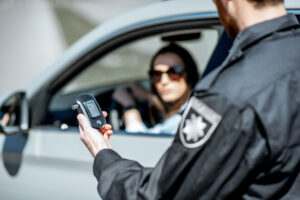
Photo Cred: Adobe Stock
Florida state Senator Nick Diceglie, a Republican residing in Pinellas County, introduced
a bill on Jan. 19 which requires a driver to put an ignition interlock device in their vehicle
for one year if they refuse a breathalyzer test.
The bill, also known as the Lawful Breath Test for Alcohol, aims to establish a reliable
and standard method for testing an individual’s blood-alcohol level.
An ignition interlock device is a breath alcohol analyzer connected to an ignition. It
would be installed at the owner’s expense for one year after a first refusal and 18
months for a subsequent refusal.
According to current Florida law, when drivers resist a test after being suspected of DUI,
their license is suspended for a year. According to a bill analysis, there was a 35%
breath test refusal rate in 2022. Previous studies found there is a 24% nationwide
average.
Aaron Wayt, the legislative committee chair of the Florida Association for Criminal
Defense Lawyers, fears high refusal rates are due to the accuracy of tests.
“Upon further review of one breathalyzer machine, the Intoxilyzer 8000, I found it had
accuracy problems which led to a case I was working on being dismissed before it went
to trial,” he said.
Officers undergo proper training on using the breath test devices before administering
tests. Numerous topics involve procedures of how to use the machines, legal
requirements for carrying out the test, and how to operate and maintain the machines
for breath tests. Refresher training is required to update officers on any changes.
An FSU criminal justice student, Taylor White, supports the bill and is optimistic it will
reduce the number of drunk drivers.
“It baffles me knowing someone would intentionally get behind the wheel knowing
they’re impaired,” White said. “This device will reduce the number of drunk drivers
because it requires a breath sample to start the car."
The lawful breath test for alcohol bills also highlights procedures. Standard procedures
include informing the driver of their rights to resist the test and the consequences of
refusing. All tests must be administered in real time to ensure they have not ingested
anything that could interfere with the results.
Overall, the lawful breath test for alcohol bill provides procedures and guidelines to
ensure the breath tests are accurate and conducted fairly. The bill addresses the issue
by allowing enforcement officers to use devices that meet particular standards for
breath tests. It also strengthens the ability of officers to determine whether the drivers
are impaired. Hence, by following the procedures required by the law, officers can help
prevent drunk drivers from driving and keep the roads safe for everyone.
As of April 11, the Senate’s Criminal Justice Committee read the bill for the first time. If
passed, it will become effective on Jan. 1, 2024.